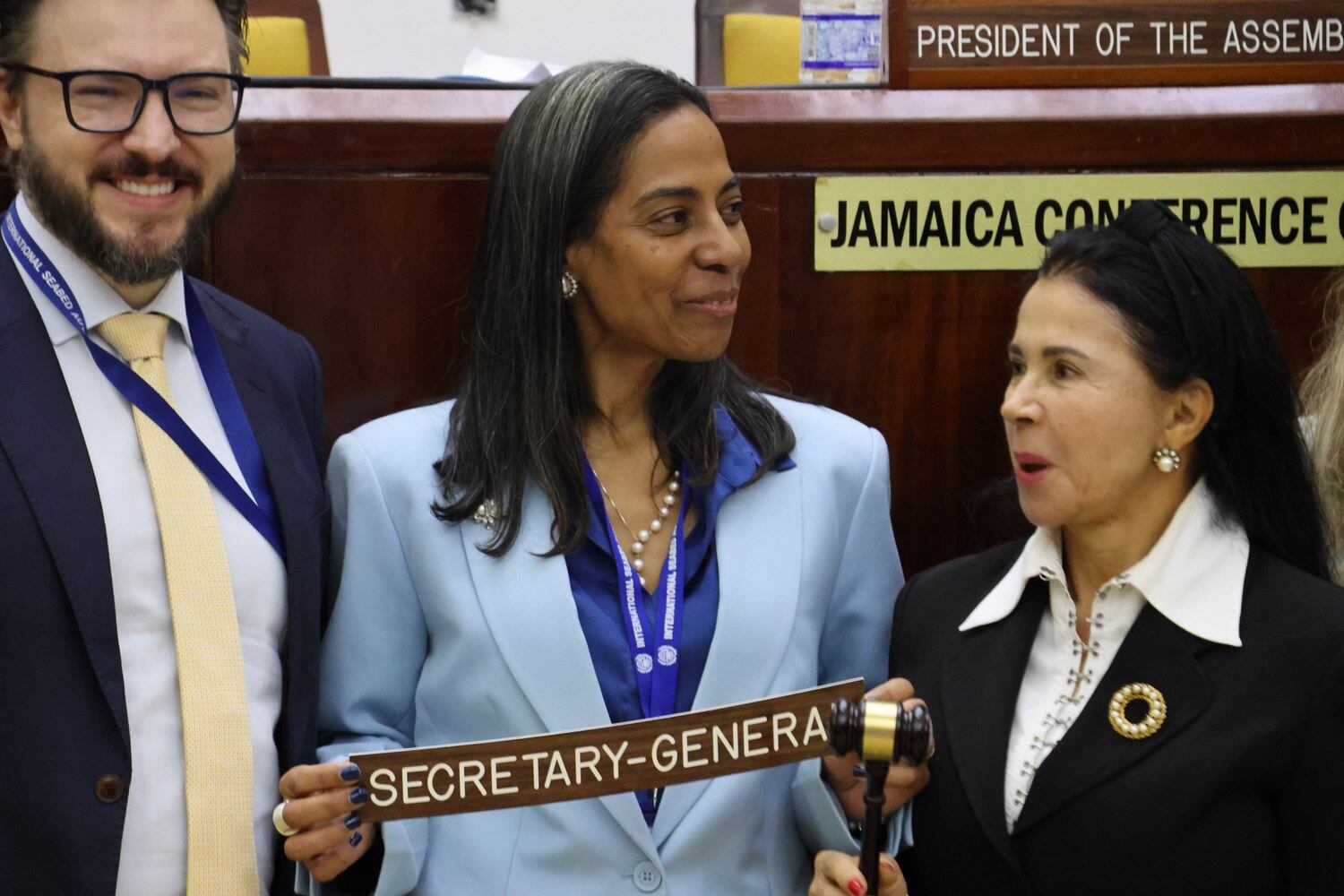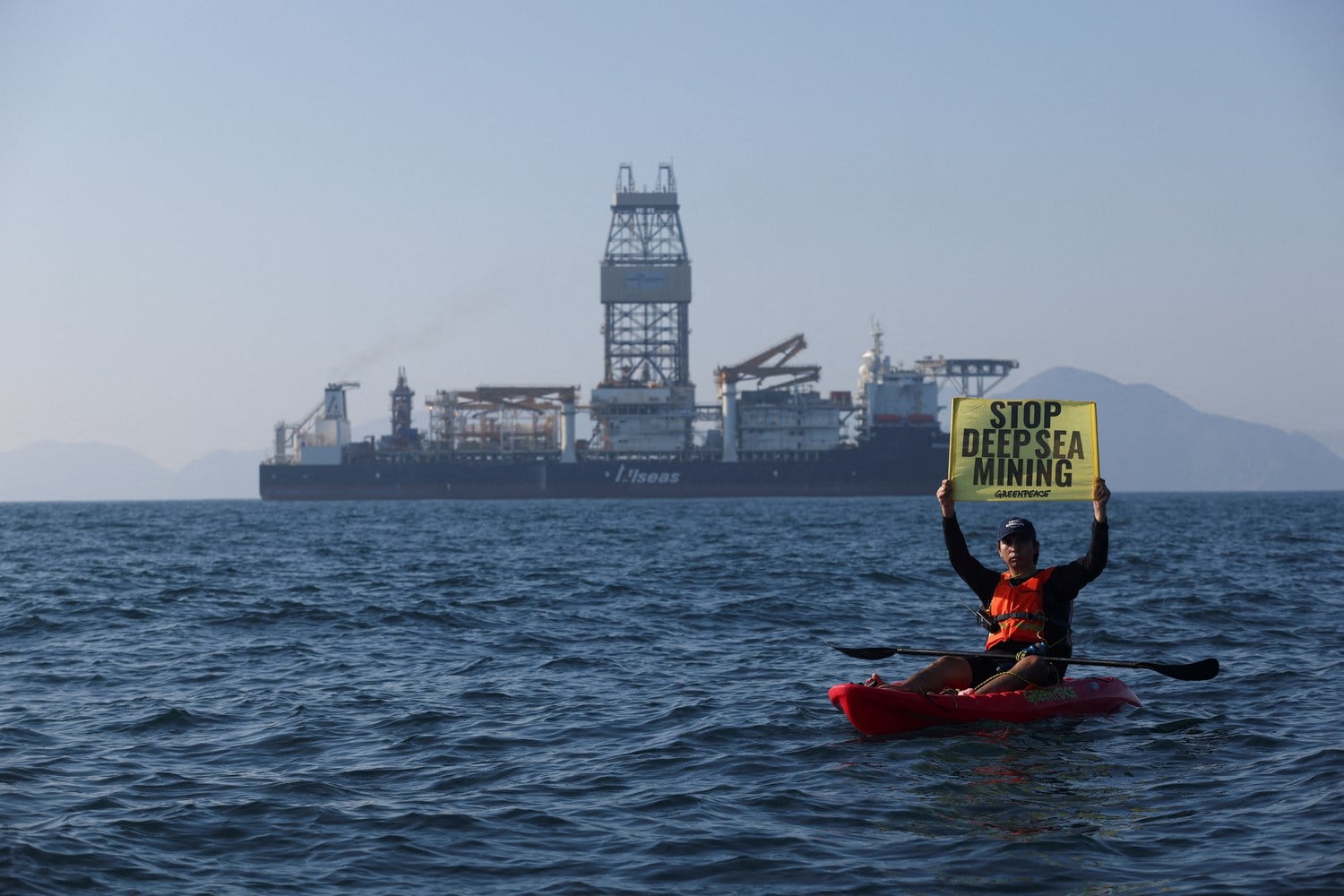Updated April 25, 2025, 07.11 a.m. ET
BANGKOK – U.S. President Donald Trump has ordered his administration to speed development of the deep sea mining industry, including in international waters governed by a U.N. treaty that most nations are signatory to.
A Trump executive order signed Thursday says the U.S. must “counter China’s growing influence over seabed mineral resources,” – namely the potato sized nodules that carpet vast areas of the seabed and contain rare earths and minerals such as nickel, cobalt and manganese.
Like Trump’s tariff shock therapy, the deep sea mining policy threatens to upend an established part of the global order. Under the framework of the international law of the sea, nations have sought to fashion a consensus on if and how deep sea minerals should be exploited.
“The United States has a core national security and economic interest in maintaining leadership in deep sea science and technology and seabed mineral resources,” the executive order said.
“The United States faces unprecedented economic and national security challenges in securing reliable supplies of critical minerals independent of foreign adversary control,” it said.
Mining of the nodules from depths of several kilometers has been touted by companies in the nascent industry as a source of minerals needed for green technologies, such as electric vehicles, that would reduce reliance on fossil fuels.
Amid a general retreat by large corporations from commitments to reduce greenhouse gas emissions, deep sea mining companies have more recently emphasized defense uses and security of mineral supply.
Skeptics say the minerals in so-called polymetallic nodules are already abundant on land and warn that mining the seabed could cause irreparable damage to an ocean environment that is still poorly understood by science.
Trump’s executive order said the Commerce Secretary should within two months expedite the process of issuing mineral exploration licenses and commercial exploitation permits in seabed areas beyond American national jurisdiction.
The instruction sets the U.S. against the International Seabed Authority, or ISA, which was established in 1996 to regulate exploitation of mineral endowments in international waters. About 54% of the seabed is under the ISA’s jurisdiction.
The ISA’s secretary-general, Leticia Carvalho, last month said the authority was the “only universally recognized legitimate framework” for regulating mining in international waters.
“Any unilateral action would constitute a violation of international law and directly undermine the fundamental principles of multilateralism, the peaceful use of the oceans and the collective governance framework,” she said in a statement.
The U.S. has not signed the U.N. Convention on the Law of the Sea, which is the enabling treaty for the ISA, and is only an observer at the authority.
Trump’s executive order was in part foreshadowed by Nasdaq-traded The Metals Company’s application last month for U.S. government approval to mine the seabed under its 1980 minerals law.
The Metals Company has been collaborating with the Pacific island nations of Nauru and Tonga to mine areas allocated to them in international waters of the Pacific Ocean.
TMC’s chief executive Gerard Barron said the executive order marks a “pivotal return” to U.S. leadership in deep sea minerals, a field it once dominated.
“This action reasserts America’s role in securing critical seabed resources and ensures the U.S. is not left behind in a strategic arena increasingly influenced by China,” he told RFA.
“We look forward to delivering the world’s first commercial nodule project—responsibly and economically,” he said.
Nauru in particular has chafed against the ISA’s consensus-based decision making, which means that after nearly three decades it hasn’t agreed rules for the deep sea mining industry.
Other countries, from Norway to the Cook Islands in the South Pacific, are investigating deep sea mining in their own waters, which doesn’t require ISA approval.
Edited by Mike Firn and Taejun Kang.
Updated with comments from The Metals Company chief executive.


